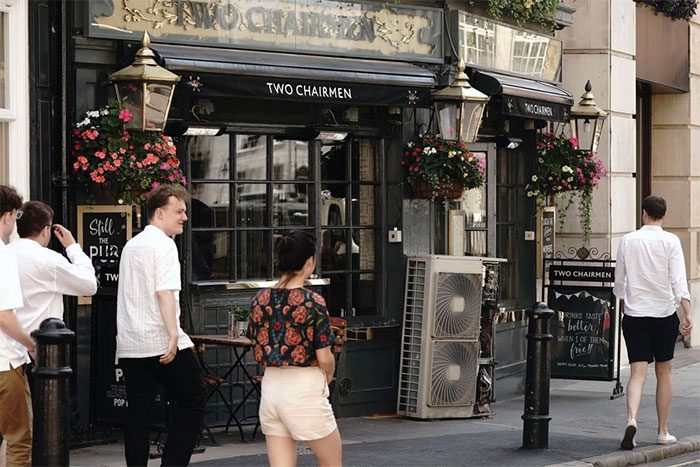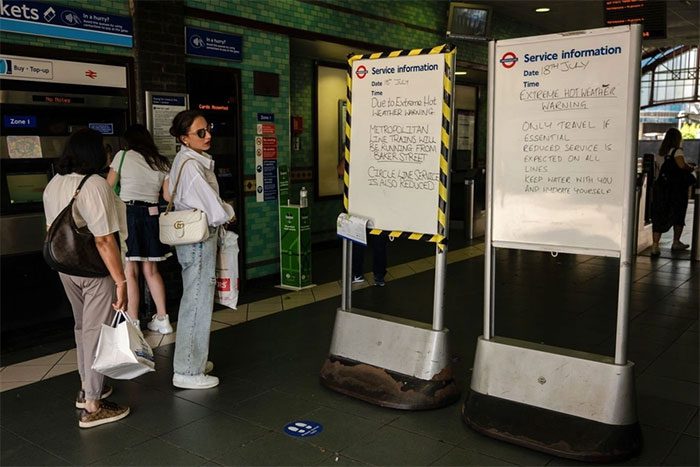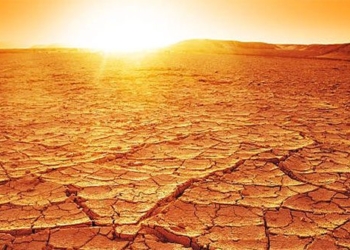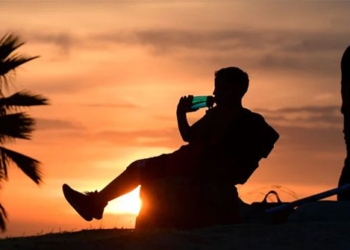The intense heatwave this summer is exacerbating the energy crisis in Europe, as electricity demand surges while supply faces pressure from various factors.
High temperatures combined with low rainfall in many areas across Europe have driven up electricity consumption while making it difficult for companies to increase output from sources like hydropower and nuclear energy, according to the Wall Street Journal.
This situation has forced some power companies to burn more coal and gas to meet the electricity demand. This is not the approach Europe desires, as the continent is striving to reduce its dependence on Russian gas supplies.
The increased demand for fossil fuels also makes carbon emission reduction targets more elusive. Scientists warn of a detrimental feedback loop where rising temperatures lead to higher emissions, further exacerbating climate change issues.
“Increasing gas and coal production to meet demand is causing carbon emissions to rise, making the climate situation even worse than it currently is,” stated Fabian Rønningen, an analyst at research firm Rystad Energy.
“The situation has deteriorated from bad to unusually bad”
The trend of reduced energy consumption in summer in Europe is changing due to the recent extreme heat. Analysts note that electricity consumption surged by up to 10% in Germany during the recent heatwave. With supply under pressure while demand remains high, Germany had to draw gas from some storage facilities earlier this month instead of replenishing for the upcoming winter.
In France, the national grid operator Réseau de Transport d’Électricité reported that when temperatures hit 25 degrees Celsius, there was a significant increase in the demand for fans and air conditioning.
“For every degree Celsius increase, we have to meet an additional electricity demand equivalent to the consumption of a city the size of Bordeaux,” a spokesperson for RTE compared. The metropolitan area of Bordeaux has a population of about one million.

Air conditioning units outside a pub in London. (Photo: Zuma Press).
Henning Gloystein, Director of Energy, Climate, and Resources at Eurasia Group, remarked that the heatwave in Europe has made “the somewhat bad situation become unusually bad.”
Analysts believe that European energy companies cannot ramp up production from other major energy sources. Many of France’s nuclear power plants have been offline, while wind energy has been lower in some areas this summer. Hydropower output in the first half of this year has decreased by over 20% compared to the same period last year, according to Rystad Energy.
However, Europe has been partially compensated by solar energy, with electricity generation from this source reaching record levels across 27 EU countries two weeks ago. In Germany, solar energy production in July increased by more than 30% compared to a year earlier, according to data from the European grid operator ENTSO-E.
Encouraging Shorter Showers to Save Energy
Nevertheless, in some areas, this compensation is insufficient to fill the gap left by declining hydropower output. In Norway, Europe’s leading hydropower producer, companies are cutting back production to conserve water for winter.
“This is one of the worst years for Norway’s hydropower sector. Storage levels in Norway’s dams and reservoirs are nearing all-time lows,” Rønningen said.
Drought in Spain and Italy, along with low river levels in France and Germany, are all impacting hydropower production, according to ENTSO-E data.

The London Underground network disrupted and closed during the record heatwave in the UK. (Photo: Bloomberg).
During last week’s heatwave, four of France’s operational nuclear reactors nearly had to reduce output due to environmental regulations. The nuclear reactors in France require river water for cooling, while hot water is discharged back into the river. If temperatures reach a certain threshold, the discharge of hot water must be restricted to protect the local environment.
However, officials allowed four plants – three on the Rhône River and one at the Garonne River estuary – to receive exemptions and continue operating at full capacity.
Europe is preparing for potential energy shortages in the future by committing to reduce consumption levels.
On July 26, French retailers set a goal to reduce energy usage by 10% over the next two years. They promised to dim lights during peak hours and lower indoor heating temperatures near payment areas and doorways starting this fall.
In Germany, Economy Minister Robert Habeck launched a campaign encouraging citizens to save energy this summer, including reducing shower times and lowering water temperatures.
The city of Augsburg has dimmed streetlights and turned off lights at the town hall, churches, and museums. Officials are also shutting down some fountains and lowering water temperatures at outdoor pools and showers.
“During the summer months, you can truly take action to save energy,” said city market Eva Weber earlier this month.




















































